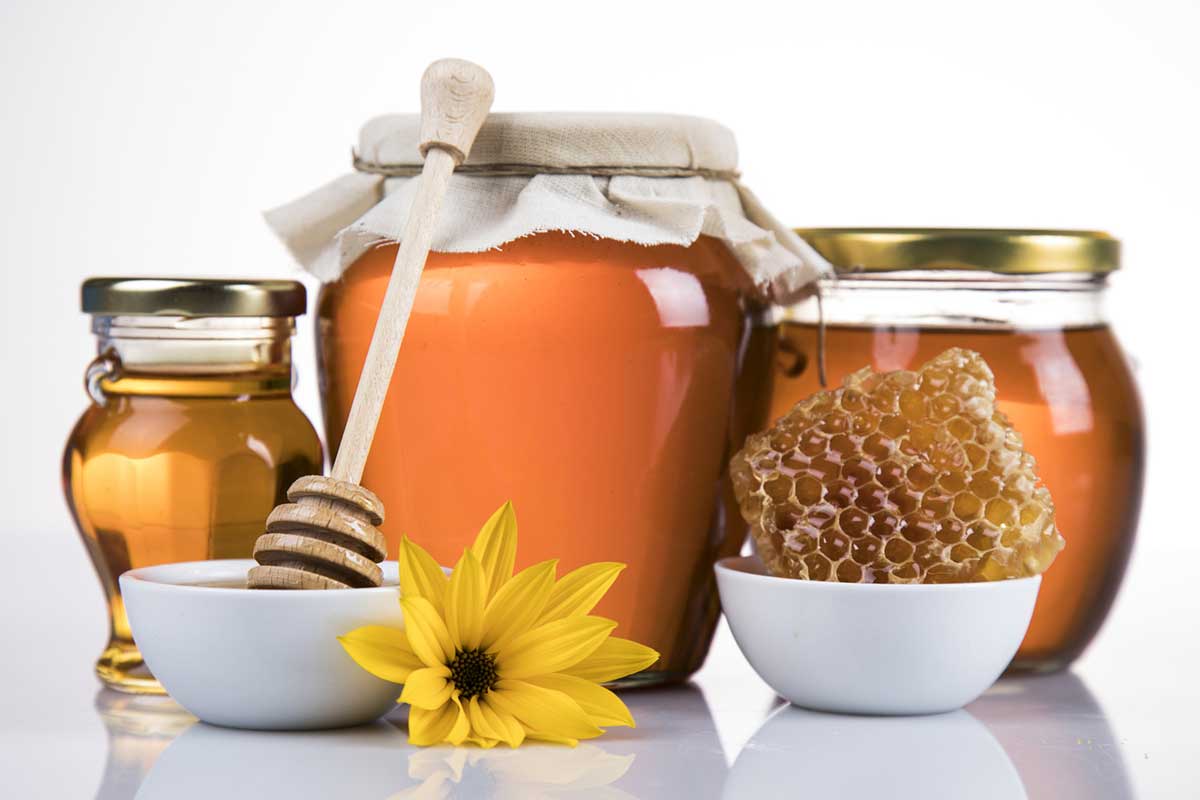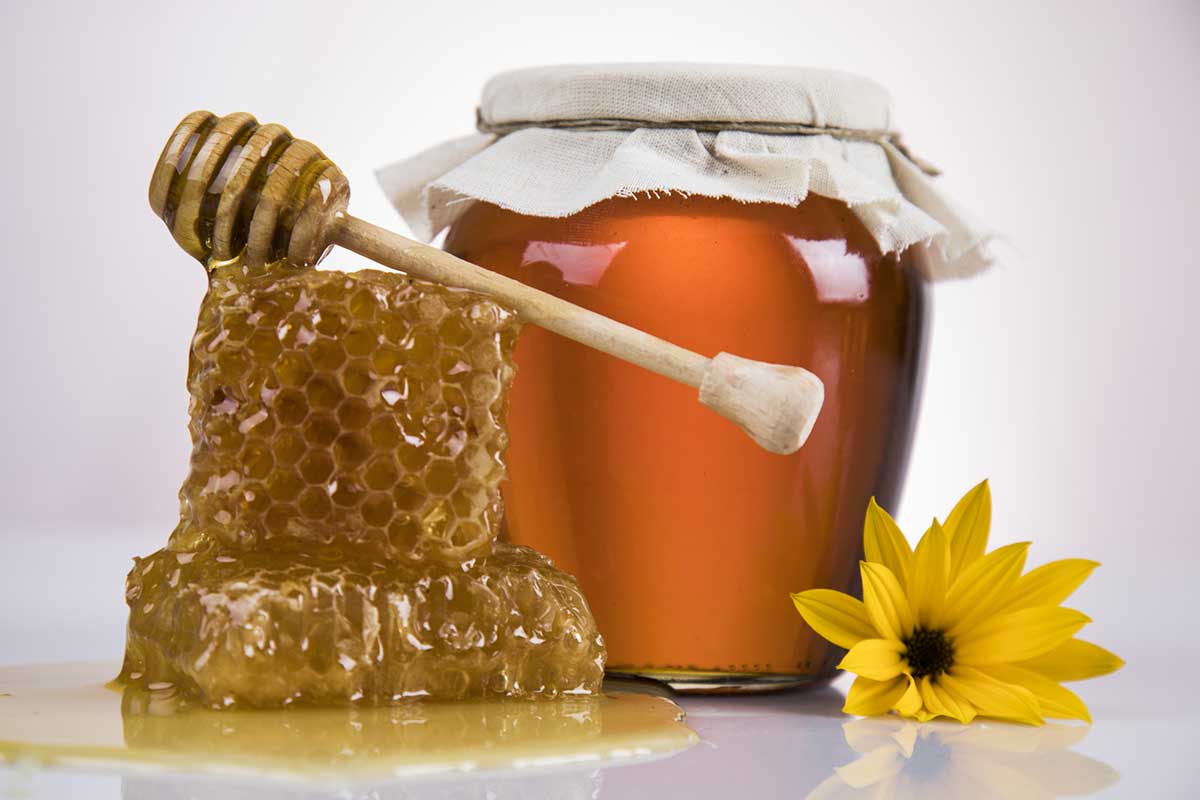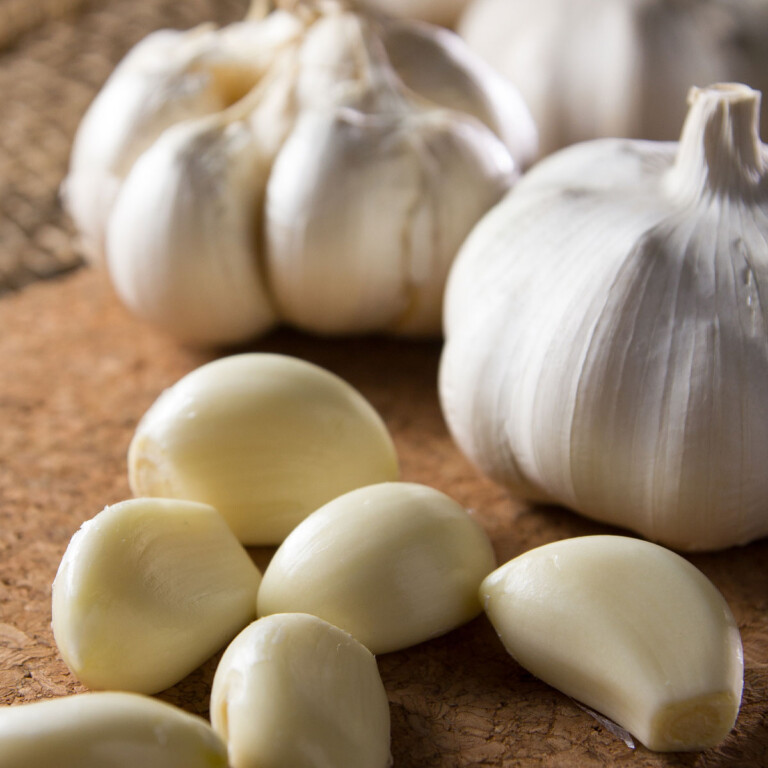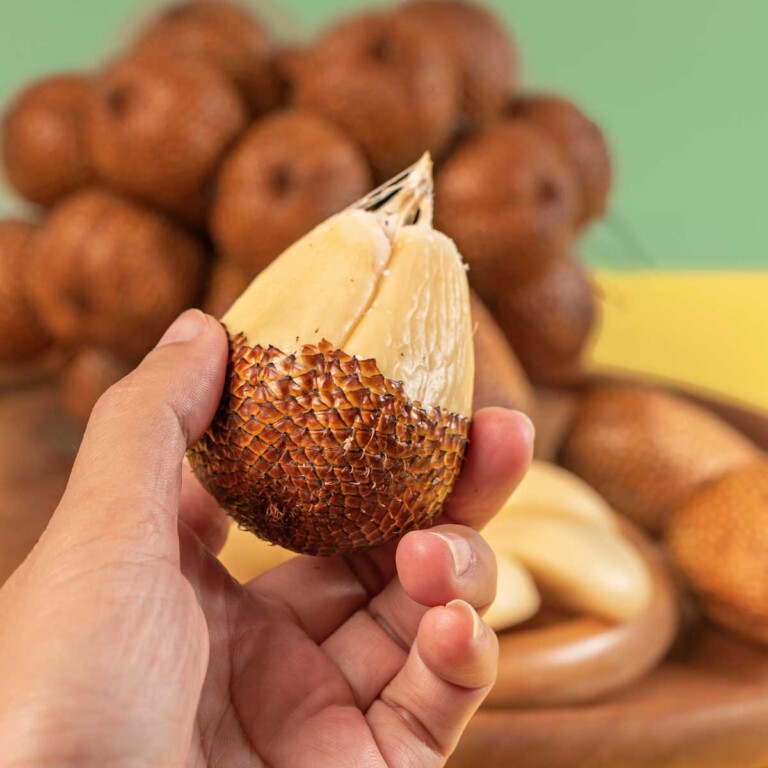20 Incredible Health Benefits of Wildflower Honey
This post may contain affiliate links. If you make purchase after clicking a link, I may receive a commission at no extra cost to you.
Last Updated on November 28, 2023
Wildflower honey is loaded with potential health benefits. Not only is the sweet taste of this natural sugar appealing, it contains vitamins, minerals, antioxidants and other properties that make it great for your body! Keep reading to learn about the health benefits of wildflower honey.

What Is Wildflower Honey?
Wildflower honey is a type of honey that is derived from the nectar of various wildflowers. It is known for its distinct flavor and aroma, which can vary depending on the types of flowers in the surrounding area.
The production of wildflower honey involves bees collecting nectar from a variety of blooming wildflowers, such as daisies, clovers, lavender, and sunflowers. The bees then bring the nectar back to their hives, where it is transformed into honey through a process of enzymatic activity and evaporation.

Wildflower Honey Nutrition Facts
The composition of wildflowers in this raw honey comes with a variety of health benefits. Before you learn how the consumption of honey can benefit you, let’s take a look at the nutritional profile.
- Amino acids: Wildflower honey contains a variety of essential and non-essential amino acids.
- Antioxidants: Wildflower honey is known for its high antioxidant content, which helps combat oxidative stress in the body.
- Micronutrients: Wildflower honey is a good source of micronutrients like vitamins and minerals. It typically contains small amounts of vitamins B complex, including B6, thiamin, riboflavin, niacin, and pantothenic acid. Additionally, it may contain trace amounts of minerals such as calcium, magnesium, potassium, zinc, and iron.
- Enzymes: Wildflower honey contains enzymes that contribute to its unique taste and texture. These enzymes aid in the digestion and absorption of nutrients in our bodies.
- Minerals: In addition to micronutrients mentioned earlier, wildflower honey also provides an array of essential minerals that are important for maintaining optimal health. These minerals play key roles in supporting bone health, nerve function, immune system function, energy production, and more.
- Vitamins: While wildflower honey is not a significant source of vitamins compared to fruits or vegetables, it does contain small amounts of certain vitamins mentioned earlier (vitamin B complex).

Health Benefits Of Wildflower Honey
There are loads of potential health benefits of honey. Not only does the sweet taste make a great natural sugar, it can have positive effects on your overall health when consumed in moderation.
Take a look at 20 awesome benefits of wildflower honey for your body.
Helps Boost Immunity
Wildflower honey contains powerful immune-boosting compounds such as antioxidants, vitamins, and minerals that help strengthen the immune system, protecting the body against infections and diseases.
Soothes Sore Throat
The natural antibacterial and anti-inflammatory properties of wildflower honey can provide relief to a sore throat by reducing inflammation and fighting off bacteria. Be sure to add some wildflower honey to your cup of hot anti-inflammatory tea.
Provides Energy
Wildflower honey is a natural source of carbohydrates, which are essential for providing energy to the body. It can be a healthy alternative to processed sugars for a quick energy boost.
Supports Digestive Health
The enzymes present in wildflower honey aid in digestion and promote a healthy gut by helping to break down food effectively. It can also soothe an upset stomach or indigestion.
Relieves Cough
Consuming wildflower honey can provide cough relief due to its thick consistency and soothing properties that coat the throat, reducing irritation. This makes it helpful for soothing upper respiratory tract infections.
Promotes Wound Healing
Applied topically, wildflower honey acts as a natural antiseptic and promotes wound healing by preventing infection, reducing inflammation, and speeding up tissue regeneration.
Enhances Sleep Quality
The natural sugar content in organic wildflower honey helps regulate the release of serotonin in the brain, promoting relaxation and better sleep quality.
Supports Weight Management
Pure honey is a healthier sweetener option compared to refined sugars as it provides natural sweetness with fewer calories while satisfying cravings.
Improves Skin Health
Applying wildflower honey topically can moisturize the skin, promote collagen production, reduce acne breakouts, and improve overall skin texture and appearance.
You can even use honey in a DIY turmeric mask for added benefits.
Helps Lowers Blood Pressure
Studies have shown that regular consumption of wildflower honey may help lower blood pressure levels due to its antioxidant compounds that contribute to cardiovascular health.
Reduces Allergy Symptoms
Consuming local wildflower honey has been suggested to help reduce allergy symptoms over time by exposing individuals to small amounts of local pollen, potentially desensitizing the immune system.
Adding wildflower honey to hot tea for a sinus infection can help alleviate annoying symptoms!
Supports Heart Health
The antioxidants and flavonoids found in wildflower honey can help reduce the risk of heart diseases by improving blood flow, reducing inflammation, and protecting against oxidative stress.
Can Boost Cognitive Function
The antioxidants in wildflower honey help protect brain cells from damage caused by free radicals, potentially enhancing cognitive function, memory, and overall brain health.
Regulates Blood Sugar Levels
Despite being sweet, wildflower honey has a lower glycemic index compared to refined sugars, meaning it causes a slower rise in blood sugar levels and can be incorporated into a balanced diet for individuals with diabetes.
Provides Antimicrobial Properties
Wildflower honey possesses natural anti-microbial properties that can inhibit the growth of certain bacteria and fungi, making it beneficial for oral health and preventing infections.
Supports Bone Health
Wildflower honey contains trace minerals like calcium and magnesium that contribute to maintaining strong bones and preventing conditions like osteoporosis.
Helps Reduce Inflammation
The anti-inflammatory properties of wildflower honey can help alleviate symptoms of inflammatory conditions like arthritis and promote overall joint health.
Enhances Exercise Performance
Consuming wildflower honey before or during physical activity provides a quick source of energy and helps maintain blood sugar levels, aiding in endurance and performance.
Improves Mood
The natural sugars in wildflower honey stimulate the release of serotonin in the brain, which can improve mood and provide a sense of well-being.
Promotes Oral Health
Wildflower honey’s antibacterial properties can help prevent tooth decay and gum diseases by inhibiting the growth of harmful bacteria in the mouth.

Types Of Wildflower Honey
There are several different types of wildflower honey available on the market. These variations are influenced by factors such as the geographical location, climate, and seasonality of the flowers from which the nectar was collected.
Some popular types of wildflower include:
California Wildflower Honey
California wildflower honey has a subtle sweetness with floral undertones. This type of honey is produced by bees that collect nectar from a variety of wildflowers native to California, such as lavender, sage, and clover.
The diverse range of flowers contributes to the unique flavor profile of California wildflower honey.
Appalachian Wildflower Honey
Appalachian wildflower honey has a rich and robust flavor with hints of caramel and molasses. It is sourced from the Appalachian region in the eastern United States, where bees gather nectar from a wide array of wildflowers including goldenrod, blackberry blossoms, and tulip poplar trees.
The mixture of these different floral sources gives this honey its distinct taste.
Pacific Northwest Wildflower Honey
Pacific Northwest wildflower honey is characterized by its mild yet complex flavor profile. Bees in this region collect nectar from an abundance of flowering plants like blackberry bushes, fireweed, and clover.
The resulting honey has gentle floral notes with a touch of citrus and a clean finish. This honey pairs well with teas, yogurt, or as a glaze for roasted root vegetables.
Sardinian Wildflower Honey
Sardinian wildflower honey hails from the island of Sardinia in Italy. This unique honey boasts a strong aromatic flavor with herbal undertones.
Bees gather nectar from various native Mediterranean flowers like rosemary, thyme, and heather, which contribute to its distinctive taste. Sardinian wildflower honey is often enjoyed on bread or used in traditional Sardinian desserts.
Arizona Wildflower Honey
Arizona wildflower honey offers a rich and full-bodied taste with subtle hints of desert flora. Bees collect nectar from a diverse range of wildflowers, including mesquite, desert lavender, and cacti blooms.
The result is a honey with a deep amber color and a robust flavor profile. Its unique taste makes it an excellent choice for glazes, marinades, or as a natural sweetener in coffee or tea.
Georgia Wildflower Honey
Georgia wildflower honey is characterized by its smooth and buttery flavor. It is produced by bees that collect nectar from various flowering plants native to Georgia, such as tupelo trees, blackberries, and clover.
This honey has a light golden color and a well-balanced sweetness with subtle floral notes. Georgia wildflower honey is often enjoyed on biscuits, paleo pancakes, or used as an ingredient in salad dressings or marinades.
Check out: Buckwheat Honey Vs Manuka Honey (Side-by-side Comparison) | The Best Natural Sweeteners and Refined Sugar Substitutes

Where To Find Wildflower Honey
The healthiest honey to buy is raw honey that contains the nectar of local wildflowers. Raw wildflower honey is most beneficial for seasonal allergies when the bee pollen comes from sources where you live.
The best option for finding local honey is from farmers’ markets or specialty stores that carry a wide range of healthy food products. You should avoid purchasing regular honey from grocery stores as it’s often processed and may contain other ingredients, as well as lack the health benefits.
How To Store Wildflower Honey
It’s important to store honey in a cool, dry place away from direct sunlight. This will help preserve its flavor and prevent crystallization. It is not necessary to refrigerate honey as it has natural preservatives that inhibit bacterial growth.
How Long Is Wildflower Honey Good?
Wildflower honey has an indefinite shelf life if stored properly. However, over time it may darken in color and develop crystallization. This does not necessarily indicate spoilage but rather natural changes in the composition of the honey.
To restore liquid consistency to crystallized honey, simply place the container in warm water until it liquefies again.
Wildflower Honey Vs Other Types Of Honey
Wondering how wildflower honey stackes up against other common types of honey?
Clover Honey Vs Wildflower Honey
- Flavor: Clover honey has a mild, delicate flavor with hints of floral notes. Wildflower honey has more bold and complex flavors due to the variety of flowers the bees collect nectar from.
- Uses: Both clover honey and wildflower honey are versatile and can be used in similar ways.
- Health benefits: Clover honey is known to have antioxidant properties and may help soothe coughs and sore throats. Wildflower honey, on the other hand, may provide a wider range of health benefits due to its diverse floral sources.
Manuka Honey Vs Wildflower Honey
- Flavor: Manuka honey has a distinctive rich flavor with earthy undertones. Wildflower honey has a more diverse taste profile depending on the flowers present in the blend.
- Uses: Manuka honey is often used for medicinal purposes due to its unique antibacterial properties. It can be consumed directly or applied topically to wounds or skin conditions. Wildflower honey is more commonly used as a natural sweetener and for culinary purposes.
- Health benefits: Manuka honey is highly regarded for its potential antibacterial properties. These properties may aid in wound healing and promote digestive health. Wildflower honey contains various vitamins, minerals, and antioxidants that contribute to overall well-being.
Orange Blossom Honey Vs Wildflower Honey
- Flavor: Orange blossom honey has a distinct citrusy aroma and a sweet floral taste derived from orange blossoms. Wildflower honeys vary in flavor depending on the regional flowers but generally offer a complex sweetness.
- Uses: Orange blossom honey is ideal for adding a burst of flavor to all types of tea, desserts, fruit salads, or glazes. Wildflower honeys are versatile and can be used similarly in various recipes that call for sweetness.
- Health benefits: Orange blossom honey contains vitamin C and antioxidants from the orange blossoms. This may boost the immune system and promote healthy skin. Wildflower honey provides a range of health benefits depending on the flowers present in the blend.
You might also want to check out: Amazing Nutritional Health Benefits of Pure Maple Syrup
Ways to Use Wildflower Honey
Its sweet floral flavor makes wildflower honey an excellent addition to teas, smoothies, and baked goods. It can also be used as a natural sweetener in vinaigrettes and marinades. Here are some more ways to reap the health benefits of wildflower honey:
- Natural sweetener: Wildflower honey can be used as a healthier sweetener for coffee, drizzled over AIP porridge, and used in place of refined suar in recipes.
- Skincare: It can be used as a natural ingredient in homemade face masks, scrubs, and lotions due to its moisturizing and antibacterial properties.
- Healing wounds: Applying wildflower honey topically on minor cuts and burns can promote healing and prevent infection.
- Sore throat relief: Consuming warm water with wildflower honey and lemon can soothe a sore throat and provide temporary relief.
- Cough suppressant: Mixing wildflower honey with herbal teas or warm water can help alleviate cough symptoms.
- Face cleanser: Mixing wildflower honey with water or oil creates a gentle cleanser that can remove dirt and impurities from the skin without stripping away moisture.
- Hair mask: Wildflower honey mixed with coconut oil or yogurt can be applied to the hair as a nourishing mask, leaving it soft and shiny.
- Digestive aid: Consuming small amounts of wildflower honey before meals may help soothe indigestion or stomach discomfort.
- Moisturizing bath soak: Adding wildflower honey to a warm bath can help moisturize and soften the skin.
- Sleep aid: Consuming a small amount of wildflower honey before bed may promote relaxation and improve sleep quality.
- Face mask: Mixing wildflower honey with other natural ingredients like yogurt or oats can create a hydrating face mask that revitalizes the skin.
- Eye treatment: Applying a small amount of wildflower honey around the eyes can help reduce puffiness and hydrate the delicate skin.
- Lip balm: Mixing wildflower honey with beeswax and essential oils creates a nourishing lip balm that helps soothe dry, chapped lips.
- Scalp treatment: Massaging a mixture of wildflower honey and olive oil onto the scalp can help nourish the hair follicles and promote healthier hair growth.
- Natural preservative: The antimicrobial properties of wildflower honey make it an effective natural preservative for certain foods, extending their shelf life.
Potential Side Effects Of Wildflower Honey
- Allergic reactions: Some individuals may be allergic to honey, including wildflower honey. Symptoms of an allergic reaction can range from mild to severe and may include itching, hives, swelling, difficulty breathing, or even anaphylaxis in rare cases. If you have a known allergy to honey or other bee products, it is important to avoid consuming wildflower honey.
- Blood sugar fluctuations: Wildflower honey contains natural sugars, including fructose and glucose. While these sugars are generally absorbed more slowly than refined sugars, they can still affect blood sugar levels. People with diabetes or those who need to monitor their blood sugar levels should consume wildflower honey in moderation.
- Weight gain: Like any sweetener, wildflower honey is calorie-dense and can contribute to weight gain if consumed in excess. It is important to practice portion control and incorporate wildflower honey into a balanced diet.
Precautions
- Do not give honey to infants under the age of 1: Honey, including wildflower honey, should not be given to infants under the age of 1 year due to the risk of botulism toxin present in some types of honey.
- Consult with your healthcare provider: If you have any underlying health conditions or are taking medications, it is advisable to consult with your healthcare provider before incorporating wildflower honey into your diet.
Final Summary on Wildflower Honey Benefits
While wildflower honey offers several health benefits such as antioxidant properties and potential antibacterial effects, it is important to be aware of its potential side effects. Individuals with allergies or specific medical conditions should exercise caution when consuming wildflower honey. Be sure to seek advice from your healthcare provider if needed. With proper precautions and mindful consumption, wildflower honey can be enjoyed as part of a healthy and balanced lifestyle.
Sources
- https://www.nutritionix.com/i/simplynature/wildflower-honey/53d6468efc10da8179b488a1
- https://www.lookfantastic.com/blog/advice/benefits-of-honey-on-skin
- https://www.goodrx.com/conditions/cough/does-honey-help-cough
- https://www.smileyhoney.com/blogs/honey-school/clover-honey-vs-wildflower-honey-how-are-they-different
- https://www.grimesapiary.com/honey-facts
- https://savannahbee.com/blogs/the-latest-buzz/the-many-faces-of-wildflower-honey
- https://www.ruraltreasures.com/products/organic-wildflower-honey
- https://pubmed.ncbi.nlm.nih.gov/32817011
- https://www.webmd.com/diabetes/honey-diabetes







